Jade Varden's Blog, page 10
August 2, 2015
Gripped by Rebellion
"A gripping, young adult adventure in an authoritarian, fantasy world."
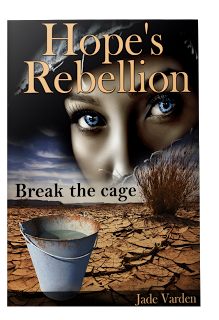
"This is an author and world I would like to read more of."
"Hope’s Rebellion" has been reviewed at the Bookworm Chronicles. Read the whole review to find out the Bookworm’s final rating!
Visit the Books page to find out how to get your copy of "Hope’s Rebellion."

"This is an author and world I would like to read more of."
"Hope’s Rebellion" has been reviewed at the Bookworm Chronicles. Read the whole review to find out the Bookworm’s final rating!
Visit the Books page to find out how to get your copy of "Hope’s Rebellion."
Published on August 02, 2015 05:30
July 30, 2015
Writing 101 Redux: You Don't Have to Write in Order
They say that Margaret Mitchell wrote Chapter 1 of "Gone With the Wind" after the rest of the book was finished. Sometimes, the only way to get through the first draft is to start skipping over stuff. You can always get back to it later.

Read all about the fine art of skipping around when you write in this week's Throwback Writing 101 tip!

Read all about the fine art of skipping around when you write in this week's Throwback Writing 101 tip!
Published on July 30, 2015 05:30
July 29, 2015
Writing 101: Why You Have to Micromanage
I had a bit of trouble getting a cover together for my most recent (finished) book. Well, that’s a euphemism. The truth is, I bought like 5 covers. I wish I was exaggerating that number even a little. The first 4 times, I was way too considerate of other people’s creative process. I’ve learned that when you self-publish, even if you don’t do every little thing yourself you have to micromanage every little thing about your book. If not, you’re going to end up with half a dozen covers that you can’t even use.
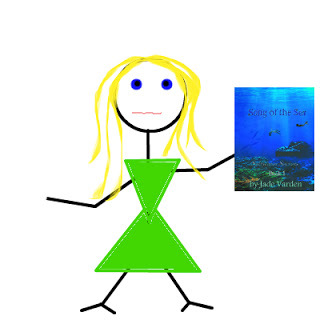
Every Little Breath You Take
As an indie author, you don’t necessarily have to do everything yourself -- but you do have to direct all of it. Even if you hire an editor, a trailer-maker, a graphic cover designer or a guy to write your Tweets, you’ve got to tell them in explicit detail exactly what you want and what you expect. Because, as I learned, you’re just wasting time and money if you do otherwise.
It’s fine to give people a little bit of creativity, but they’re going to need to figure out how to exercise that creativity within the extremely strict boundaries that you set. If you’re buying a cover, make a mockup of a cover first. It doesn’t matter if you’re a terrible artist, because that’s what you’re hiring the designer for. But you’ve got to give them an idea of what you want. Tell your editor that you like semicolons and exclamation points, and to lay off your punctuation (or whatever it is). Give the trailer designer some images you find yourself, and a good idea of what you want the trailer to say and show. Don’t tell them to do whatever they want, or give them too much freedom, because most of the time you won’t like the final results.
To put it simply, you have to micromanage. Give clear instructions, show examples and be direct about what you want. That’s pretty much the only way you can be sure that you’ll get it.

Every Little Breath You Take
As an indie author, you don’t necessarily have to do everything yourself -- but you do have to direct all of it. Even if you hire an editor, a trailer-maker, a graphic cover designer or a guy to write your Tweets, you’ve got to tell them in explicit detail exactly what you want and what you expect. Because, as I learned, you’re just wasting time and money if you do otherwise.
It’s fine to give people a little bit of creativity, but they’re going to need to figure out how to exercise that creativity within the extremely strict boundaries that you set. If you’re buying a cover, make a mockup of a cover first. It doesn’t matter if you’re a terrible artist, because that’s what you’re hiring the designer for. But you’ve got to give them an idea of what you want. Tell your editor that you like semicolons and exclamation points, and to lay off your punctuation (or whatever it is). Give the trailer designer some images you find yourself, and a good idea of what you want the trailer to say and show. Don’t tell them to do whatever they want, or give them too much freedom, because most of the time you won’t like the final results.
To put it simply, you have to micromanage. Give clear instructions, show examples and be direct about what you want. That’s pretty much the only way you can be sure that you’ll get it.
Published on July 29, 2015 05:30
July 28, 2015
Writing 101: The Book That Breaks Your Heart
Writing books is a stressful and overwhelming experience, but at the end of the project it fills you with a wonderful sense of accomplishment. Writing books can even be fun...until you write the book that breaks your heart. Maybe it doesn’t happen to all authors, but it did happen to me. Maybe it’ll happen to you, too.

Just Me and My Shadow
In looking back through the blog, you will find that I actually mention this book a lot. I'm being honest when I say I can't get over it; I still think about it all the time. I wrote it some years ago and loved it too well. There's much more to the story, but the point of it is that this book gave me writer's block for an inordinately long amount of time. I put it away and tried to forget it. I got it back out and re-read it. I thought that would help me get it out of my system. It didn't. I’ve read it since. I still feel the heartbreak when that book, somehow, gets brought into the conversation.
It is possible to put too much of yourself into a book, to allow yourself to have too many dreams about it. This is something that happens to artists of all kinds. They say that Leonardo da Vinci was obsessed with the Mona Lisa, and dragged it around with him for years. Walt Whitman wrote an inordinate amount of drafts of “Leaves of Grass,” and still felt it was unfinished when it went to print. So it does happen. It is possible to lose your heart to your own creation. Haven’t other authors written books about that very thing already?
The point is, I don’t think you ever really get over a heartbreak like that. I haven’t. But even when you truly love another, you can still write books. You can still create new stories. You can survive with a broken heart, and maybe even use it to write better books in the future.

Just Me and My Shadow
In looking back through the blog, you will find that I actually mention this book a lot. I'm being honest when I say I can't get over it; I still think about it all the time. I wrote it some years ago and loved it too well. There's much more to the story, but the point of it is that this book gave me writer's block for an inordinately long amount of time. I put it away and tried to forget it. I got it back out and re-read it. I thought that would help me get it out of my system. It didn't. I’ve read it since. I still feel the heartbreak when that book, somehow, gets brought into the conversation.
It is possible to put too much of yourself into a book, to allow yourself to have too many dreams about it. This is something that happens to artists of all kinds. They say that Leonardo da Vinci was obsessed with the Mona Lisa, and dragged it around with him for years. Walt Whitman wrote an inordinate amount of drafts of “Leaves of Grass,” and still felt it was unfinished when it went to print. So it does happen. It is possible to lose your heart to your own creation. Haven’t other authors written books about that very thing already?
The point is, I don’t think you ever really get over a heartbreak like that. I haven’t. But even when you truly love another, you can still write books. You can still create new stories. You can survive with a broken heart, and maybe even use it to write better books in the future.
Published on July 28, 2015 05:30
July 27, 2015
Louisa May Alcott Didn’t Want to Write YA
If you've watched the movie version of "Little Women," you know that Jo wrote stories of murder, revenge, passion and crime. So did Louisa May Alcott as a young writer. That's what she always wanted to write about. But when her family fell on hard time, she had to write something that would sell. That's how she got into the YA literature game...and that's the stuff that she didn't like writing.
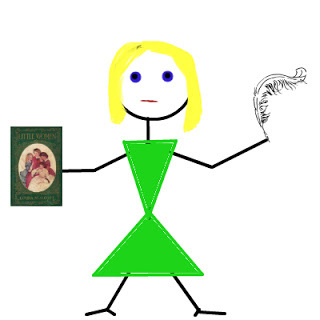
Choices
Louisa May Alcott was around 35 when her editor told her to try writing a book for girls, rather than the crime-laden tales she preferred to pen. Alcott wouldn't have followed his advice, but her family was in dire financial straits. Her father had squandered most of the family's wealth, and they were suffering.
So, she wrote "Little Women" in order to make a little money. Louisa May Alcott ended up making a lot of money because of that book, and sold many copies. The popularity of the books demanded sequels, and that's what editors wanted from her.
Louisa May Alcott wrote the book so she could make some money. Undoubtedly, she hoped that she could go back to writing her thrilling tales of death and murder after "Little Woman" brought in a few bucks. Instead, she wrote three sequels to the original story and continued writing YA for the rest of her career.
She hated it.
Louisa May Alcott learned a lesson that many other authors also learn: you can’t always get what you want. Even when things work out, they might not really, really work out. Alcott wrote more books in her career, books for adults, but they never reached the same popularity as her material for younger readers. Today she’s remembered by young girls everywhere, and her most iconic story is still the stuff of literary legend. But if all her dreams had actually come true, the world would know Louisa May Alcott as a writer of tough crime fiction.

Choices
Louisa May Alcott was around 35 when her editor told her to try writing a book for girls, rather than the crime-laden tales she preferred to pen. Alcott wouldn't have followed his advice, but her family was in dire financial straits. Her father had squandered most of the family's wealth, and they were suffering.
So, she wrote "Little Women" in order to make a little money. Louisa May Alcott ended up making a lot of money because of that book, and sold many copies. The popularity of the books demanded sequels, and that's what editors wanted from her.
Louisa May Alcott wrote the book so she could make some money. Undoubtedly, she hoped that she could go back to writing her thrilling tales of death and murder after "Little Woman" brought in a few bucks. Instead, she wrote three sequels to the original story and continued writing YA for the rest of her career.
She hated it.
Louisa May Alcott learned a lesson that many other authors also learn: you can’t always get what you want. Even when things work out, they might not really, really work out. Alcott wrote more books in her career, books for adults, but they never reached the same popularity as her material for younger readers. Today she’s remembered by young girls everywhere, and her most iconic story is still the stuff of literary legend. But if all her dreams had actually come true, the world would know Louisa May Alcott as a writer of tough crime fiction.
Published on July 27, 2015 05:30
July 23, 2015
Writing 101 Redux: Are You Too Lengthy?
So, are your books just too long?

Read today's Throwback Writing 101 about going to extreme lengths to find out just how long too long really is.

Read today's Throwback Writing 101 about going to extreme lengths to find out just how long too long really is.
Published on July 23, 2015 05:30
July 22, 2015
Writing 101: How Much Blood is Too Much Blood?
I had to take a break after finishing a chapter in my first draft last weekend, and I realized that maybe, just maybe, I crossed a literary line. So now I’ve got to ask myself, how much blood is too much blood in a book?

Let’s Get Drenched
A certain amount of violence is to be expected in certain types of stories. Can you imagine “The Princess Bride” without the exciting swordfighting? How’d you like to read the Harry Potter books without the wizard dueling? Or maybe you’d be jazzed to crack open a copy of “Divergent” without all the battle scenes and training? Of course not, there would be nothing left. So sometimes, a little bit of violence is required. Or even a lot. But plenty of books don’t get gruesome about it. That makes it tricky for other authors to find out where that line is located. Do you know where it’s at? http://jadevarden.blogspot.com/2013/1...
It’s one thing to kill a character and now everyone’s sad. It’s another thing to see that character get ripped apart by a rabid pack of wolves, or whatever. Violence is easier to digest, I’ve found, when it’s not so graphic. So just how graphic can you get before you start crossing lines and potentially making your readers sick?
Believe it or not, there is a simple answer. When your readers want to put the book down because it’s too much, that’s when you’ve crossed the line. You’ve gone too far the moment it puts a reader off of your book. It’s okay to get a little graphic, sometimes. It’s fine to let the readers see the blood dripping, sometimes. When you want them to feel horror, when you want them to feel fear, when you want them to react, blood can actually be a very helpful tool. But when you make your readers want to turn away from you, you’ve used too much blood.
Use your beta readers, your family, your friends and your own good judgement. Find the line between necessary blood and way too much. You may want to drench the pages in buckets of blood, but sometimes a few puddles will still get the job done. Write bloody...but don’t get too bloody while you’re doing it.

Let’s Get Drenched
A certain amount of violence is to be expected in certain types of stories. Can you imagine “The Princess Bride” without the exciting swordfighting? How’d you like to read the Harry Potter books without the wizard dueling? Or maybe you’d be jazzed to crack open a copy of “Divergent” without all the battle scenes and training? Of course not, there would be nothing left. So sometimes, a little bit of violence is required. Or even a lot. But plenty of books don’t get gruesome about it. That makes it tricky for other authors to find out where that line is located. Do you know where it’s at? http://jadevarden.blogspot.com/2013/1...
It’s one thing to kill a character and now everyone’s sad. It’s another thing to see that character get ripped apart by a rabid pack of wolves, or whatever. Violence is easier to digest, I’ve found, when it’s not so graphic. So just how graphic can you get before you start crossing lines and potentially making your readers sick?
Believe it or not, there is a simple answer. When your readers want to put the book down because it’s too much, that’s when you’ve crossed the line. You’ve gone too far the moment it puts a reader off of your book. It’s okay to get a little graphic, sometimes. It’s fine to let the readers see the blood dripping, sometimes. When you want them to feel horror, when you want them to feel fear, when you want them to react, blood can actually be a very helpful tool. But when you make your readers want to turn away from you, you’ve used too much blood.
Use your beta readers, your family, your friends and your own good judgement. Find the line between necessary blood and way too much. You may want to drench the pages in buckets of blood, but sometimes a few puddles will still get the job done. Write bloody...but don’t get too bloody while you’re doing it.
Published on July 22, 2015 05:30
July 21, 2015
Writing 101: When Hard Work Doesn’t Pay Off
I’ve been vocal in my belief that writing is a skill that can be learned with practice, patience and hard work. It is hard work, though many envision something far different when they first pursue the writing dream. It takes a lot of research, editing and rewriting to come up with something decent, let alone great. But here’s the secret about writing: hard work doesn’t always pay off.
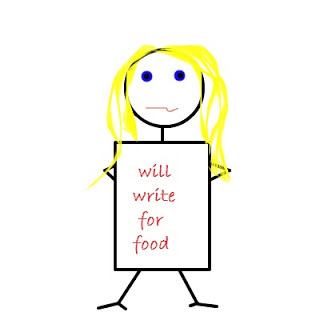
Blood, Sweat and Tears
Many authors will agree that often, luck and good connections play a part in success. If you are obsessed with learning about the backstories of authors, as I am, you will see this is a thread that’s repeated often. Many authors either a) got lucky or b) knew the right people. Of course, they were also talented and hard-working writers. But it’s also true that sometimes, hard work alone just isn’t enough.
Writing is tricky, and no one has really figured out what people will respond to and what they won’t. Many people were surprised by the runaway success of books like Fifty Shades of Grey and Twilight, for example -- even the authors. Readers are unpredictable.
That’s why sometimes, some things aren’t going to work out. Blogs fail. Books don’t sell. Jobs fall through. And even when you work your hardest and truly give something your all, it may become a dead end instead of that shining path to success you were sure it was going to be. That’s how writing is, sometimes. Even the hardest-working authors may never get on a Top Ten bestseller list, or sell a million copies.
But there is something that all successful authors and writers also have that can’t be denied: perseverance. So when one path doesn’t work out, turn around and go find yourself another. Open windows when doors close. Get more creative, get a little more bold, get back to writing and try something different this time. Because hard work doesn’t always pay off...but not working enough never will.

Blood, Sweat and Tears
Many authors will agree that often, luck and good connections play a part in success. If you are obsessed with learning about the backstories of authors, as I am, you will see this is a thread that’s repeated often. Many authors either a) got lucky or b) knew the right people. Of course, they were also talented and hard-working writers. But it’s also true that sometimes, hard work alone just isn’t enough.
Writing is tricky, and no one has really figured out what people will respond to and what they won’t. Many people were surprised by the runaway success of books like Fifty Shades of Grey and Twilight, for example -- even the authors. Readers are unpredictable.
That’s why sometimes, some things aren’t going to work out. Blogs fail. Books don’t sell. Jobs fall through. And even when you work your hardest and truly give something your all, it may become a dead end instead of that shining path to success you were sure it was going to be. That’s how writing is, sometimes. Even the hardest-working authors may never get on a Top Ten bestseller list, or sell a million copies.
But there is something that all successful authors and writers also have that can’t be denied: perseverance. So when one path doesn’t work out, turn around and go find yourself another. Open windows when doors close. Get more creative, get a little more bold, get back to writing and try something different this time. Because hard work doesn’t always pay off...but not working enough never will.
Published on July 21, 2015 05:30
July 20, 2015
The Day Agatha Christie Went Crazy, Maybe
I don’t know if my blog posts have accurately echoed my dismay, but lately I’ve been feeling a little bit like I want to run around outside screaming, or maybe take a trip to London to stand in that famous park and rant all day long. In some ways, I can understand the people who walk around putting up signs that warn about the upcoming end of the world. In short, I’ve been climbing walls and freaking out. And as long as I don’t do any of those weird things, I guess that’s okay...because Agatha Christie went a little crazy once, too. Well, maybe.
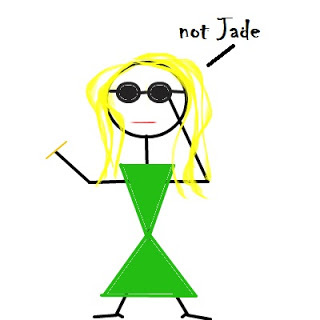
Her Greatest Mystery
For 11 days, the famous Queen of mystery novels went missing. Vanished. The year was 1926, the whole event was totally bizarre, and people have been trying to unravel this lingering mystery in all the decades since.
Agatha Christie was pretty much already a household name on December 3, 1926. She had published 6 novels, and the latest was selling out quickly. When the time struck 9:45 in the evening, Agatha Christie got in her car and drove away. The car, a Morris Cowley, was found abandoned later. There was no sign of the mystery author. Agatha Christie was gone.
Did she drown in the nearby Silent Pool? The natural spring had previously claimed one life. Was she merely trying to sell more books with a weird publicity stunt? Or had she, in fact, been a victim of murder? All knew that her WWI hero husband, Archie, was a philanderer.
Sherlock Holmes author Sir Arthur Conan Doyle was even involved in the investigation. He took one of the author's gloves to a medium. Author Dorothy Sayers went to the site where the car was found to look for clues.
The famed mystery writer was located at last, at a fancy hotel in Harrogate. She was staying there under a false name, the name of her husband's mistress. She said she had no memory of the events that led to her disappearance, or the days thereafter.
She never spoke about her disappearance, leaving everyone else to speculate about it for many years after her death. There are all sorts of theories about it, but maybe it’s not as complicated as one of Christie’s well-plotted novels. Maybe there’s a simple answer: she went a little crazy.
If you haven’t gone a little crazy from time to time, you may not really be a writer. Words don’t behave themselves the way they should, readers don’t respond the way we expect, things always end up different in the final draft than the way you imagined them being when you were still on the first page. In short, it’s all quite maddening.
And isn’t it tempting to run away from all of that and go to a luxury hotel? I’d do it right now if I didn’t have a blog to finish. So maybe Agatha Christie went a little crazy one day, and ran away from her big name because it got to be a little too heavy to carry. Sometimes, you’ve got to run away from the words to get a little breathing room. Most of us can’t go to a luxury spa hotel...but we can turn off the laptop, stop thinking about plot points and assume a new name for a little while.

Her Greatest Mystery
For 11 days, the famous Queen of mystery novels went missing. Vanished. The year was 1926, the whole event was totally bizarre, and people have been trying to unravel this lingering mystery in all the decades since.
Agatha Christie was pretty much already a household name on December 3, 1926. She had published 6 novels, and the latest was selling out quickly. When the time struck 9:45 in the evening, Agatha Christie got in her car and drove away. The car, a Morris Cowley, was found abandoned later. There was no sign of the mystery author. Agatha Christie was gone.
Did she drown in the nearby Silent Pool? The natural spring had previously claimed one life. Was she merely trying to sell more books with a weird publicity stunt? Or had she, in fact, been a victim of murder? All knew that her WWI hero husband, Archie, was a philanderer.
Sherlock Holmes author Sir Arthur Conan Doyle was even involved in the investigation. He took one of the author's gloves to a medium. Author Dorothy Sayers went to the site where the car was found to look for clues.
The famed mystery writer was located at last, at a fancy hotel in Harrogate. She was staying there under a false name, the name of her husband's mistress. She said she had no memory of the events that led to her disappearance, or the days thereafter.
She never spoke about her disappearance, leaving everyone else to speculate about it for many years after her death. There are all sorts of theories about it, but maybe it’s not as complicated as one of Christie’s well-plotted novels. Maybe there’s a simple answer: she went a little crazy.
If you haven’t gone a little crazy from time to time, you may not really be a writer. Words don’t behave themselves the way they should, readers don’t respond the way we expect, things always end up different in the final draft than the way you imagined them being when you were still on the first page. In short, it’s all quite maddening.
And isn’t it tempting to run away from all of that and go to a luxury hotel? I’d do it right now if I didn’t have a blog to finish. So maybe Agatha Christie went a little crazy one day, and ran away from her big name because it got to be a little too heavy to carry. Sometimes, you’ve got to run away from the words to get a little breathing room. Most of us can’t go to a luxury spa hotel...but we can turn off the laptop, stop thinking about plot points and assume a new name for a little while.
Published on July 20, 2015 05:30
July 18, 2015
Saltwater Secrets Book 2: Sneak Peek
This is a Jade’s blog exclusive look at Book 2 in the Saltwater Secrets trilogy. Book 1, Song of the Sea, is available in paperback and ebook now.
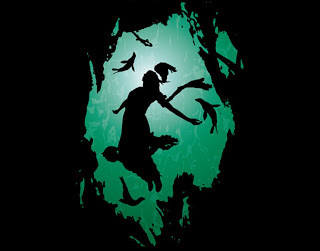
The waves were the color of steel, flat and dark against the frozen air. The sky was gray, too, and the salt smell was almost overpowering. A storm was brewing, a big one. I walked just to the edge of the beach and stopped to stare up at the sky.
“There you are. Finally.”
“Nix?” I knelt down to speak to the bobbing woman who had just surfaced. “I thought I saw you earlier.”
“You did.” Nixie heaved herself out of the water, swinging her tail around to flop it onto the sand. She was planning to stay for a long chat. When she was staying only briefly, Dylan’s sister stayed in the water.
She gathered her wet hair at her neck and draped it over one shoulder to keep it from dripping on her drying tail. “I saw all the excitement and decided to wait,” Nixie finished her thought.
We both looked out at the water while she flopped her tail against the sand, drying it so that her legs would appear. That way, I wouldn't look like a crazy person if someone saw me talking to her. It just wasn’t normal to sit on a beach at night and chat with someone hanging halfway in the ocean. It took me more than one visit to explain that to Nixie.
“Yeah,” I glanced over my shoulder at my house. It was still black against the night sky; for once, my dad wasn't in the kitchen. “I had a birthday party. Or, friends had it for me. Only I wasn't there a whole lot.”
“I noticed,” Nixie answered. “Here.”
“What's this?” I picked up the package she had tossed into my lap. It was a small, leather pouch with a rope of seaweed holding it closed.
“For your birthday.”
I smiled at her, but she was still staring at the water. “That was nice of you to remember. I know that merfolk don’t really have birthdays.”
She shrugged. “Humans do, though. Open it up.”
It took me a few minutes to unknot the seaweed, and once the pouch was open I saw an object wrapped in more seaweed. Nixie stayed silent while I grunted my way through the present. She was like that. She could sit and be quiet and still.
I’m not like that. I fidget and talk and grunt, and I was making noise while I pulled the ropy sea plants away. Once I finally exposed the object, I still had no idea what it was. “It's lovely.”
Now Nix did look at me, and she was smirking. “It isn't meant to be lovely.”
“Then what’s it meant to be?” I looked up at her. It was a mistake. I tried to avoid looking directly at Nixie’s face whenever possible. I looked at the necklace she always wore, or her dark blonde hair. Looking at her eyes was a mistake. They were too similar to Dylan’s dizzying blue-green eyes. Too often, I caught myself looking at Nixie and wishing I was looking at him instead.
“It’s a lodestone. A natural magnet.”
“Oh.” I picked up the rock and rolled it between my fingers. “It looks like a shiny piece of coal.”
“It’s not. It can even be used as a compass.” Her tail was dry now. It had split into two long legs.
“And where will it lead me?”
“Where you belong.” Nixie didn’t look at me when she answered, and that was for the best. We were both looking out at the waves.
“This rock knows where I belong?”
“Sure. Don't you?”
“No,” I answered honestly.
“That's why I gave it to you.”
Look for Book 2 in the Saltwater Secrets trilogy this September!

The waves were the color of steel, flat and dark against the frozen air. The sky was gray, too, and the salt smell was almost overpowering. A storm was brewing, a big one. I walked just to the edge of the beach and stopped to stare up at the sky.
“There you are. Finally.”
“Nix?” I knelt down to speak to the bobbing woman who had just surfaced. “I thought I saw you earlier.”
“You did.” Nixie heaved herself out of the water, swinging her tail around to flop it onto the sand. She was planning to stay for a long chat. When she was staying only briefly, Dylan’s sister stayed in the water.
She gathered her wet hair at her neck and draped it over one shoulder to keep it from dripping on her drying tail. “I saw all the excitement and decided to wait,” Nixie finished her thought.
We both looked out at the water while she flopped her tail against the sand, drying it so that her legs would appear. That way, I wouldn't look like a crazy person if someone saw me talking to her. It just wasn’t normal to sit on a beach at night and chat with someone hanging halfway in the ocean. It took me more than one visit to explain that to Nixie.
“Yeah,” I glanced over my shoulder at my house. It was still black against the night sky; for once, my dad wasn't in the kitchen. “I had a birthday party. Or, friends had it for me. Only I wasn't there a whole lot.”
“I noticed,” Nixie answered. “Here.”
“What's this?” I picked up the package she had tossed into my lap. It was a small, leather pouch with a rope of seaweed holding it closed.
“For your birthday.”
I smiled at her, but she was still staring at the water. “That was nice of you to remember. I know that merfolk don’t really have birthdays.”
She shrugged. “Humans do, though. Open it up.”
It took me a few minutes to unknot the seaweed, and once the pouch was open I saw an object wrapped in more seaweed. Nixie stayed silent while I grunted my way through the present. She was like that. She could sit and be quiet and still.
I’m not like that. I fidget and talk and grunt, and I was making noise while I pulled the ropy sea plants away. Once I finally exposed the object, I still had no idea what it was. “It's lovely.”
Now Nix did look at me, and she was smirking. “It isn't meant to be lovely.”
“Then what’s it meant to be?” I looked up at her. It was a mistake. I tried to avoid looking directly at Nixie’s face whenever possible. I looked at the necklace she always wore, or her dark blonde hair. Looking at her eyes was a mistake. They were too similar to Dylan’s dizzying blue-green eyes. Too often, I caught myself looking at Nixie and wishing I was looking at him instead.
“It’s a lodestone. A natural magnet.”
“Oh.” I picked up the rock and rolled it between my fingers. “It looks like a shiny piece of coal.”
“It’s not. It can even be used as a compass.” Her tail was dry now. It had split into two long legs.
“And where will it lead me?”
“Where you belong.” Nixie didn’t look at me when she answered, and that was for the best. We were both looking out at the waves.
“This rock knows where I belong?”
“Sure. Don't you?”
“No,” I answered honestly.
“That's why I gave it to you.”
Look for Book 2 in the Saltwater Secrets trilogy this September!
Published on July 18, 2015 05:30



